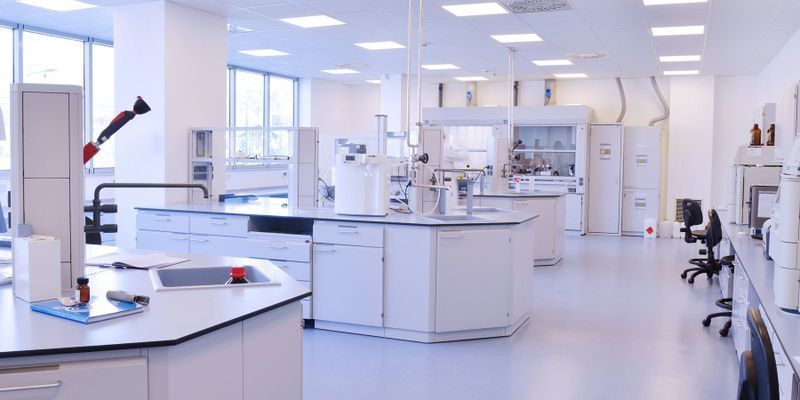A laboratory is a location where experiments, measurements, research, or other scientific research activities about chemistry, physics, biology, and other disciplines are conducted. The laboratory might be a confined room, like a room, or open space, like a garden.
A laboratory can also be defined as a location where a group of individuals does various types of investigation (research), observation, training, and scientific testing as a bridge between theory and practice from different fields. Physically, a laboratory can also refer to a closed or open room or place.
The laboratory is not a common location in the center of study and research; in fact, its very existence hinges on its utilization for observation, research, and the production of new discoveries.
Likewise, laboratory functions differ based on the type. Additionally, there are various types of laboratories, but the addition of new types relies on the role of the laboratory.
Laboratory Functions
There are numerous laboratory functions, including the following:
1. As a location and medium for balancing and uniting the theory and practice of science
2. Provide researchers with scientific job skills, whether students, lecturers, or other researchers. This is because the laboratory requires knowledge of the topic being examined and someone to conduct experiments.
3. Enhance the skills and experience of researchers in using the media tools accessible in the laboratory to discover and determine scientific truth by the many types of study or testing to be conducted.
4. Cultivate researchers’ interest in diverse branches of science to inspire them to constantly study and seek scientific truth through research, trials, and experiments.
5. The laboratory’s primary function might bolster researchers’ confidence in their gained abilities and findings.
6. Provide and encourage researchers (consisting of students, students, lecturers, and all other scientific practitioners) with the bravery to seek the nature of scientific truth from a scientific object in its natural and social surroundings.
7. The laboratory function as a learning tool for students, students, lecturers, activists, researchers, and others to comprehend all still-abstract science so that it becomes tangible and real.
8. The function of the laboratory can be a source of learning to solve various problems through practical activities, be they learning problems, academic problems, or community concerns requiring laboratory testing.
There are numerous types of laboratories, such as
Diagnostic Laboratories
In diagnostic laboratories, clinical specimens such as urine, blood, triglycerides, and cholesterol are primarily analyzed. The purpose of these tests is to provide health practitioners with information regarding disease prevention, diagnosis, and treatment.
Frequently, they will request more tests to gain more knowledge and raise the degree of certainty regarding the diagnosis’ rejection or approval. Occasionally, such examinations may be exceedingly specialized.
Require a laboratory planner? Visit the lab supplier Malaysia for more details.










